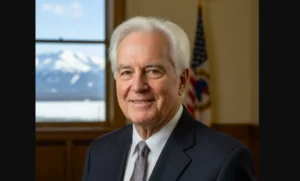The economic policies of the four major mayoral candidates in Anchorage, Alaska, are shaped by their diverse backgrounds and visions for the city’s future.
The Anchorage mayoral candidates, including incumbent Mayor Dave Bronson, former Assembly Chair Suzanne LaFrance, former AEDC President Bill Popp, and former state legislator Chris Tuck, have presented distinct approaches to addressing the city’s economic challenges.
Suzanne LaFrance takes the lead over Bronson in the 2024 Anchorage Runoff.
Anchorage, the largest city in Alaska, faces unique economic challenges, including budget deficits, unemployment, and the need for economic diversification.
The economic policies proposed by Anchorage mayoral candidates Dave Bronson and Suzanne LaFrance reflect their differing priorities and approaches to governance.
The Anchorage mayoral candidates for the 2024 election have presented distinct economic policies to address the city’s fiscal challenges and promote growth.
This analysis compares their economic platforms, providing insights into how each candidate plans to navigate Anchorage’s economic landscape.
Economic Policies of Anchorage Mayoral Candidates

Housing and Affordability
- Mayor Bronson emphasizes the importance of his experienced team in addressing housing issues.
- Suzanne LaFrance promises to “restore competence” and address the housing shortage and rapidly rising rents and home prices.
- Bill Popp believes his skills will put Anchorage “back on track,” although specific housing policies are not provided.
- Chris Tuck’s focus on collaboration and community engagement may imply a more inclusive approach to housing issues.
Economic Development and Job Creation
The unemployment rate in Anchorage for March 2024 is 3.80%. This represents a decrease of 13.64% from the previous month. However, compared to the same period last year, there is an increase of 15.15%. This data indicates that while there has been improvement over the past month, the unemployment rate is still higher than a year ago.
Chris Tuck’s emphasis on building relationships may suggest a collaborative approach to economic development.
Mayor Bronson’s approach is not explicitly stated, but his emphasis on maintaining balance in city government suggests a more conservative approach. He emphasized the importance of getting people back to work to address food and housing insecurity issues.
Suzanne LaFrance’s platform focuses on restoring competence and addressing economic challenges, including homelessness and the outmigration of working-age residents and families.
Bill Popp’s experience as AEDC President and his promise to put Anchorage “back on track” suggests a strong focus on economic development and job creation.
Minimum Wage and Income for Low-Wage Workers
- Mayor Bronson opposes government coercion of private businesses to increase wages. Still, he supports ensuring the city pays its workers enough to retain their services and enabling some employees to work from home.
- Suzanne LaFrance supports increasing the minimum wage across all sectors and expanding city-subsidized childcare with cannabis taxes as part of her solution for low-wage workers.
Systemic Barriers and Equity
- Mayor Bronson does not acknowledge “systemic racism” in Anchorage, focusing on hiring based on merit and ensuring minority representation in city employment without favoritism.
- Suzanne LaFrance wants to address systemic barriers by promoting the city’s Office of Equity and Justice and ensuring equitable municipal hiring, contracting, and purchasing.
Conclusion
The Anchorage mayoral candidates’ economic policies reflect their diverse backgrounds and approaches to Anchorage’s challenges. While Mayor Bronson emphasizes stability and a conservative approach, Suzanne LaFrance focuses on restoring competence and addressing economic issues. Bill Popp’s experience suggests a strong focus on job creation, and Chris Tuck’s emphasis on building relationships may imply a collaborative approach. The candidates also differ on minimum wage, income for low-wage workers, and systemic barriers and equity.











